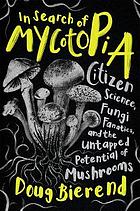










An engaging and thrilling tour of the new frontiers in mycology-from ecology to fermentation to medicine-introducing the reader to the fascinating characters involved in the fungal Renaissance. Fungi are fundamental to life. As decomposers, they are critical to the formation and sustenance of soils and ecosystems. As endlessly innovative chemists, they devise and secrete enzymes that can break down a vast variety of materials, mitigate bacterial and viral infections, and interact-for better or worse-with the bodies and brains of animals that consume their fruiting bodies, commonly called mushrooms. Given their ubiquity and utility, it's no surprise that humans have deep cultural connections to fungi and mushrooms, even while they have remained both understudied by institutional science and misunderstood by the general populace. But an emerging mycological vanguard is reaching maturity, exploring and advocating for fungi's capacity to remediate contaminated landscapes and waterways, provide food and medicine, and demonstrate how humans might live in equitable and sustainable accord with nature and one another. This diverse cadre of growers, independent researchers, ecologists, entrepreneurs, and amateur enthusiasts is also scrambling to seize on rising demand for specialty mushrooms in culinary and medicinal markets, advance burgeoning fields of 'applied mycology,' and center conversations about social justice and sustainability. In In Search of Mycotopia, Doug Bierend introduces readers to an incredible and oft-overlooked kingdom of life and the potential it holds for our future, by way of the weird and wonderful communities of citizen scientists and microbe devotees working on the fungal frontier. Together they form a picture of the modern mycological movement, which sees these organisms as teachers, partners, and sources of wisdom that offer ways and means for creating a better world"--
Read more...

